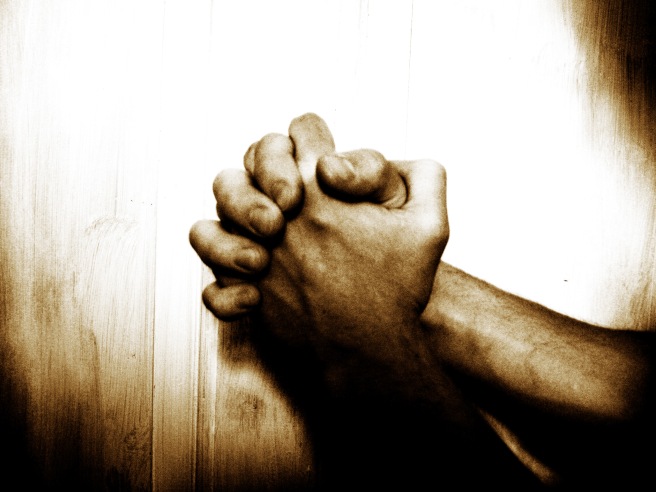Our Greatest danger
Look at this description – who do you think it’s of?
“They have a very high view of scripture, they study it, memorise it, and seek to interpret and apply it to every day life. They want those around them to walk with God not just talk about him. They seek to live lives in such a way that it pleases God. Dissatisfied with the corruption and half heartedness of contemporary worship they designed a new way of worship focused around prayer, public reading and exposition of the scriptures. They pray often, fast, value fellowship, hate sin, pursue holiness, give generously and are active evangelists.”
Maybe your thinking great, we should pop that description on our website. But it’s actually of the Pharisees of Jesus day. It’s why they are our greatest danger, why we must use this passage as an MOT for our hearts.
The scene is set for us (36)Jesus is eating in the home of Simon, a Pharisee. When suddenly (37)the conversation, which Luke tells us nothing of, stops and everyone turns, open-mouthed, to look at this infamous woman who has just walked into the room. There’s muttering and shuffling of feet as people press themselves up against the walls moving out of her way as she walks with head bowed low and jar in hand right up to where Jesus reclines at the table.
Then the shock deepens(38) as her tears begin to drop onto Jesus’ feet, she loosens her hair and begins wiping away her tears with it. Then gasps, as she breaks the jar she was carrying so carefully and pours the perfume on his feet.
How does Simon react? He’s horrified! Not only at the woman but at Jesus welcome of her. What does he expect Jesus to do? Draw up his feet and have nothing to do with the woman, to get as far away from her as possible, or condemn her and tell her to go away.
Why? Because that was the Pharisees approach to sin, they’re rightly concerned with pleasing God and with avoiding sin but they don’t live robustly holy lives instead they avoid any contact with those considered sinful. They quarantine sinners, and Simon is amazed Jesus doesn’t share his approach(39).
Simon is judgemental both of the woman and of Jesus – he concludes(40) that Jesus can’t be a prophet as a prophet would know this woman is a notorious sinner and wouldn’t allow her to touch him.
Don’t think the Pharisees weren’t interested in winning converts, they were. Matthew 23:15 Jesus says “Woe to you, teachers of the law and Pharisees, you hypocrites! You travel over land and sea to win a single convert, and then you make that convert twice as much a child of hell as you are.” They’re phenomenally sobering words – the Pharisees are passionate missionaries but their zeal is misdirected, they call people not to relationship with the God of grace but to religious slavery, to judgementalism, to separatism, to joyless drudgery.
And Simon, presentable, good, nice, religious, hospitable Simon is our greatest danger. Because we can be just like him if we don’t grasp the gospel fully, in fact even if we do we can drift, over time, to be like him.
Maybe you’re saying I’m nothing like Simon – let me explain why Simon is our greatest danger. 3 warnings from Simon.
Separatism – Simon avoids sinners, so can we. We’d never say it, we know we need to reach the lost. But our actions reveal a very different reality. Instead of fighting sin with all the weapons God gives us, his word, his people, the Spirit we avoid sin. We do quarantine, treating sin like an infectious disease we might catch if we touch it, and therefore avoiding sinners or places where sin might leap like a nit to infect us. No I don’t you say. But it’s not what you say you are you are, it’s what you are, you are.
We do separatism by living in a Christian rabbit warren. Have you ever sat and watched rabbits in a field. At the first sign of a stranger what do they do – they dart for the rabbit hole, all you see is the whites of their tails bobbing up and down. There is a Christian rabbit warren. Christian family to work to church repeat and all unbelievers see is the whites of our tails.
Or our separatism is seen in our never going where the lost are comfortable, but always inviting them to where we’re comfortable. We hold evangelistic meetings where we’re comfortable not where unbelievers hang out. We don’t just hang out in a pub, or wherever people are. But Jesus doesn’t separate himself. In Luke 5 Jesus goes to the Synagogue, in Luke 7 he eats in a Pharisees home but he also goes to the Tax booth, and Levi’s home, and Zacchaeus’ home, to eat with sinners. Not fearful of being contaminated by sin but knowing the gospel cleanses sin. His holiness is more contagious than sin.
We can be judgemental just like Simon – he/she is too great a sinner, or they are too into whatever. Or it can be seen in our judgementalism of other Christians who go where unbelievers are. A few years ago I helped organise what we called the Oasis project – a group of our teens, myself and a few others went into Doncaster on a night and gave out water to clubbers and pubbers, looking to get into conversation and share the gospel with them. Guess where the opposition came from? Inside the church – it’s a waste of time, it’s too dangerous, you’ll never win anyone there and so on… But Jesus is never judgemental and yet he is the judge. How tragic if we his people become what he never was.
We have mixed motives in our evangelism – often we engage in evangelism not because we grasp the gospel and the seriousness of sin, not because we’re passionate about people but because we’re prompted by guilt or a grudging sense of I have too, or meeting expectations. We evangelise out of a sense of duty not delight, of guilt not grace, of law not love.
Do you see how the Pharisees are our greatest danger? Are we like them? The problem is that the longer we go on as Christians the fewer non-church friends we have. There are a number of reasons for the decline in contact with non-believers. For some it’s seeing friends come to faith, for others we become too involved in church things and have no time for anyone else. For some it’s simply a lack of effort, we’re neither serving in the church nor involved in the world. For others this decline is a result of our faulty understanding of the Bible, or of holiness, which leads us to separate ourselves and isolate ourselves from the unbelieving world. Sometimes it’s just crept up on us.
It’s not what you say you are you are, it’s what you are, you are!
So if Simon is the danger what’s the alternative?


